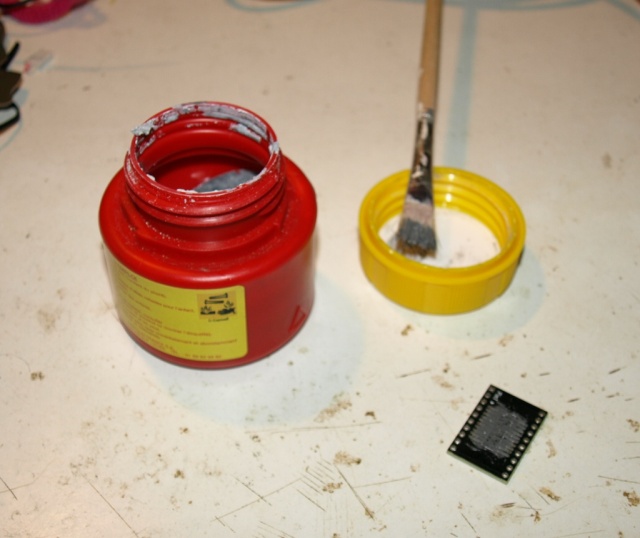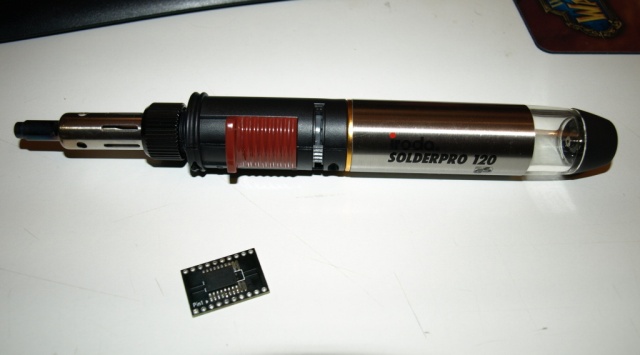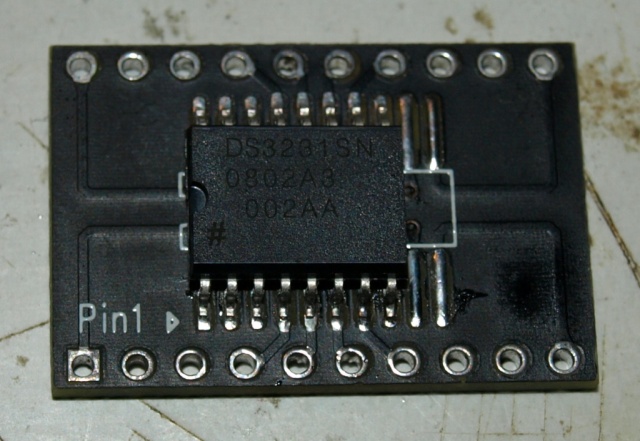Like a lot of hobbits, I don’t really like to solder SMD. It’s hard to solder with a normal soldering iron (even this can be done), and hot air soldering station cost a little. (around 180 Euros shipping included)
I already talk to my friend Bernt about this. He says he already used a cheap gas hot air gun with good result. Ok, he isn’t really an hobbist, and have a professional soldering station at work, but …
Tomorrow morning, he was waiting for me at my work, and gave me a gas hot air gun (plus additional soldering tip) ..what a great a present ! Thank you guy. In fact, they just started to sell this cheap stuff on their shop: Splashelec.
Fine, so it’s time to give it a try no ?
Hum, guess what, I don’t have any electronic flux at home. In fact this cost too much too ! (and you can’t stock it for a long time..) but I have some plumber paste on my desk. I use this stuff for wifi antenna not electronic but it should be fine.

Simply apply the paste with a brush and use the iron to melt it a bit. As I’m new to hot air soldering, I decided to use a normal iron to do that. Next step remove the surplus with some water. In fact, you can use a normal solder here, but using the paste is a bit easier to apply …
Ok ready to play ! Fire !

And the final step, place the chip on the board. Mount the heat blower on the gun and light it. Set it around the max temperature, and gently approach the chip pins. Don’t be afraid to take your time, chips are made for a reflow process, so they can handle hot air without too much issue.
Here’s the result

Fine no ? ;) The soldering is quite perfect, it’s my first time with an hot air soldering gun so.. but I’m really happy. It’s really easier than a normal soldering iron.

Interesting article! Could you provide some info about what plumber paste is? I’m not into plumbing stuff and will have to search for it in my non english speaking country.
Doing a google search I stumbled upon someone telling that plumbing fluxes are corrosive and you have to use alcohol to remove the flux in excess. Can you give some info about that? Is it dangerous for components?
Thanks!
Plumbing fluxes are corrosive of course, cause the plumber use it without any solvent. I usually apply the flux and use melt it. After that step, you need to remove the excess. Water is fine here. no alcohol needed .. and after this final step, this won’t hurt the components :)
Nice article! Tell me please where I can buy such adapters for SMD components.
I bought this from Sure Electronic on ebay